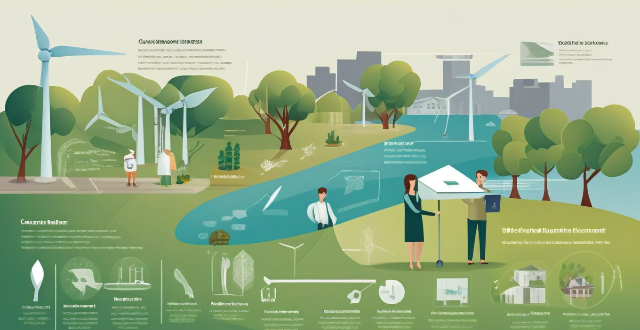Board Governance

How does private equity affect corporate governance ?
Private equity (PE) plays a significant role in shaping the governance of companies. It can have both positive and negative impacts on corporate governance, depending on various factors such as the PE firm's strategy, the nature of the investment, and the target company's existing governance structure. This article will explore the ways in which private equity affects corporate governance. ### Positive Impacts of Private Equity on Corporate Governance - **Improved Decision-Making Processes**: Private equity firms often bring fresh perspectives and expertise to the decision-making processes within a company. They may introduce new management practices or technologies that enhance efficiency and productivity. This can lead to better strategic planning and more informed decisions being made by the board of directors. - **Greater Transparency and Accountability**: Private equity investors typically demand greater transparency and accountability from the companies they invest in. This can result in improved financial reporting, regular board meetings, and increased communication between management and shareholders. Such measures help to ensure that all stakeholders are kept informed about the company's performance and future plans. - **Increased Focus on Long-Term Value Creation**: Private equity firms generally have a long-term investment horizon, which means they are more likely to focus on creating value over the long term rather than pursuing short-term gains. This can lead to a greater emphasis on sustainable growth, innovation, and responsible business practices. ### Negative Impacts of Private Equity on Corporate Governance - **Potential Conflicts of Interest**: Private equity investors may have conflicts of interest with other stakeholders, such as employees, customers, or suppliers. For example, a PE firm might push for cost-cutting measures that negatively impact employee morale or customer satisfaction. These conflicts can undermine good governance practices and harm the company's reputation. - **Pressure for Short-Term Profits**: While some private equity firms focus on long-term value creation, others may prioritize short-term profits at the expense of long-term sustainability. This can lead to excessive risk-taking, aggressive financial engineering, or even fraudulent activities aimed at boosting short-term earnings. Such behaviors can ultimately damage the company's reputation and financial health. - **Lack of Diversity in Board Composition**: Private equity firms often control a majority of the seats on a company's board of directors. This can limit diversity in terms of gender, ethnicity, and professional background among board members. A lack of diversity can lead to groupthink and reduce the effectiveness of the board in providing independent oversight and guidance to management. In conclusion, private equity has both positive and negative effects on corporate governance. The key is for PE firms to balance their pursuit of profit with a commitment to ethical business practices and responsible stewardship of the companies they invest in. By doing so, they can help build stronger, more sustainable businesses that benefit all stakeholders.

What is Environmental, Social, and Governance (ESG) ?
Environmental, Social, and Governance (ESG) is a framework used by investors to assess the sustainability and ethical impact of companies in which they invest. It is a set of criteria that helps investors evaluate a company's performance in three key areas: environmental stewardship, social responsibility, and corporate governance. By considering these factors, investors can make informed decisions about where to allocate their capital and support companies that prioritize sustainable practices and positive societal impact. The environmental aspect focuses on reducing greenhouse gas emissions, conserving resources, and protecting biodiversity. The social aspect emphasizes diversity, inclusion, labor rights, and community involvement. The governance aspect focuses on board composition, risk management, and stakeholder engagement. Overall, ESG helps investors support companies that prioritize sustainable practices and positive societal impact.

How do you connect an AC stepping motor to a microcontroller or driver board ?
Connecting an AC stepping motor to a microcontroller or driver board involves selecting the right board, connecting the power supply, attaching the motor, programming the board, testing the connection, and troubleshooting any issues. Materials needed include the motor, board, power supply, wires, and optionally a breadboard for temporary connections. Tips include double-checking connections and code, using a breadboard before soldering, and following safety guidelines when working with high voltages.

How can technology transfer and innovation support global climate governance efforts ?
Technology transfer and innovation support global climate governance by reducing greenhouse gas emissions, adapting to climate change, and mitigating its impacts. They also enable data collection and analysis, international collaboration, and financing for climate action.

How does climate governance affect sustainable development goals ?
Climate governance plays a pivotal role in shaping the achievement of sustainable development goals (SDGs). The interconnectedness between environmental preservation and socio-economic advancement necessitates a comprehensive understanding of how climate policies and actions influence the broader spectrum of global development objectives. ## **Impact on Individual SDGs** ### *Goal 2: Zero Hunger* Climate governance directly influences food security by addressing factors such as droughts, floods, and temperature fluctuations that can disrupt agricultural productivity. Effective climate policies can help to: - Ensure stable crop yields through improved irrigation systems and drought-resistant crops. - Mitigate the effects of extreme weather conditions on farming communities. - Promote sustainable land use practices to prevent soil degradation. ### *Goal 7: Affordable and Clean Energy* The transition towards renewable energy sources is at the heart of both climate governance and sustainable energy goals. Policies that encourage the adoption of clean energy technologies contribute to: - Reducing greenhouse gas emissions associated with traditional fossil fuel consumption. - Increasing access to electricity in off-grid areas using solar or wind power. - Creating new economic opportunities in the renewable energy sector. ### *Goal 13: Climate Action* This goal is inherently linked to climate governance, as it calls for urgent action to combat climate change and its impacts. Efficient climate policies can lead to: - Implementation of emission reduction strategies. - Enhanced resilience to natural disasters. - Promotion of environmentally friendly industries and jobs. ## **Cross-Cutting Impacts** ### Health and Well-being Climate governance affects public health outcomes by addressing air quality issues and reducing exposure to extreme weather events. This contributes to achieving: - **Goal 3: Good Health and Well-being** by minimizing climate-related health risks. ### Economic Growth Policies that foster green economies and low-carbon development pathways are crucial for: - **Goal 8: Decent Work and Economic Growth** by creating sustainable job opportunities. - **Goal 9: Industry, Innovation, and Infrastructure** through investment in green technology and infrastructure. ### Social Equity Climate governance also has implications for social equity and inclusion, particularly when considering the disproportionate impacts on vulnerable populations: - **Goal 10: Reduced Inequalities** by ensuring that climate adaptation and mitigation efforts do not marginalize already disadvantaged groups. ## **Conclusion** In conclusion, climate governance is an integral component of advancing sustainable development goals. By prioritizing climate action, nations can make strides in eradicating poverty, achieving food security, promoting health and well-being, and fostering economic growth while protecting the planet for future generations. The synergistic relationship between climate governance and the SDGs underscores the necessity for integrated policy approaches that consider environmental sustainability alongside social and economic development.

What is the relationship between ESG and corporate governance ?
The article explores the relationship between Environmental, SocialThe article explores the relationship between Environmental, Social (ESG) factors and It states that ESG is often considered a subset of corporate governance and focuses on specific aspects of how a company operates. Companies that prioritize ESG factors tend to have stronger corporate governance structures in place. The role of boards in overseeing a company's ESG initiatives is also discussed. Regulations and stakeholder pressure are driving the need for effective corporate governance. Best practices for integrating ESG into corporate governance include defining clear objectives, regular reviews, stakeholder engagement, and maintaining transparency and accountability.

How can technology support climate governance efforts ?
Technology significantly aids climate governance by enhancing monitoring, data analysis, and collaboration. Satellite imagery and remote sensing provide detailed environmental insights, while sensor networks offer real-time data collection for precise agriculture and environmental monitoring. AI and machine learning enable pattern recognition and optimization models for energy efficiency. Climate models help predict future scenarios and assess risks. Digital platforms foster global collaboration, while e-learning resources and social media campaigns raise awareness. Smart regulation systems and crowdsourcing platforms aid policy formulation and public participation in climate governance efforts.

What is sustainable investing ?
Sustainable investing incorporates environmental, social, and governance factors into investment strategies. It aims for long-term financial returns while promoting positive societal change and minimizing harm to the environment. Environmental considerations include climate change and pollution prevention; social factors involve labor standards and community involvement; governance focuses on transparency and ethical behavior. Benefits of sustainable investing include risk mitigation, long-term returns, and impactful investments.

What are the main challenges faced by small island states in the context of global climate governance ?
Small island states face several challenges in the context of global climate governance, including limited resources, high vulnerability to climate impacts, limited influence in global climate governance, dependence on international support, limited capacity for research and data collection, and socio-economic challenges. Addressing these challenges requires a collaborative effort between small island states, developed countries, and international institutions.

How do ESG (Environmental, Social, and Governance) criteria factor into investment strategies regarding climate change ?
ESG criteria are becoming increasingly important in investment strategies regarding climate change. Environmental criteria include renewable energy sources, emissions reduction, and sustainable sourcing. Social criteria include workforce development, community engagement, and human rights. Governance criteria include board diversity, transparency and accountability, and long-term planning. By prioritizing these criteria, investors can help drive positive change while mitigating financial risks associated with climate change.

What are the potential benefits and drawbacks of using market-based mechanisms like carbon trading in global climate governance ?
The text discusses the potential benefits and drawbacks of using market-based mechanisms like carbon trading in global climate governance. The benefits include cost-effectiveness, flexibility and innovation, economic incentives, and global cooperation. However, there are also drawbacks such as equity concerns, complexity, uncertainty, and lack of public acceptance. It is important to consider these factors carefully when designing a carbon trading system to ensure that it is equitable, transparent, and effective in reducing carbon emissions.

What are the best board games for families to play together during weekends ?
This text lists some of the best board games for families to play together during weekends. The list includes Monopoly, Scrabble, Ticket to Ride, Catan, Pandemic, Codenames, Carcassonne, Dixit, Bananagrams, and Qwixx. Each game is described with its main features and suitable age range, number of players, and playing time.

How do ESG standards affect corporate responsibility ?
ESG standards shape corporate responsibility by providing a framework for measuring and managing company impact on the environment, society, and governance. They require companies to reduce their carbon footprint, ensure sustainable sourcing, promote diversity and inclusion, engage with communities, maintain ethical business practices, and encourage board diversity. Adhering to these standards demonstrates commitment to sustainability and social responsibility, leading to long-term success and profitability.

How can cities contribute to climate governance ?
Cities are pivotal in climate governance, contributing significantly to global greenhouse gas emissions and playing a crucial role in implementing solutions and adapting to climate change impacts. Key areas of contribution include reducing emissions through transportation, energy efficiency, and waste management; building resilience via infrastructure upgrades, green spaces, and community engagement; encouraging innovation through clean tech hubs, policy leadership, and collaboration; and advocating for change by leveraging global platforms, sharing best practices, and promoting education and awareness. Cities can serve as models for sustainability, accelerating the transition towards a low-carbon future.

How do I fix a squeaky floorboard without removing it ?
Squeaky floorboards can be a nuisance, but they don't necessarily require a full board replacement to fix. Here's a summary of steps you can take to quiet your floors without major renovation: 1. **Identify the Squeak's Source**: Locate the area where the squeak is loudest by walking over it and tapping nearby boards. Check for loose nails or screws. 2. **Tighten Loose Fasteners**: If the issue is due to loose nails or screws, tighten them using a drill with a screwdriver bit or a nail punch and hammer. 3. **Lubricate the Board**: Apply graphite powder, slide in shim coated with petroleum jelly into gaps, or use a lubricant spray to reduce friction. 4. **Add Support Underneath**: Use wood shims and construction adhesive to fill gaps and provide extra support. Reinforce or replace weak joists if necessary. 5. **Fill Gaps Between Boards**: For small gaps, use wood filler or apply wood glue along tongue and groove joints. Sand down any high spots. 6. **Maintain Proper Humidity Levels**: Use a dehumidifier in humid areas and ensure good air circulation beneath the floor. Monitor seasonal changes in humidity and adjust accordingly. By addressing these issues, you can eliminate squeaky floorboards without removing them. Regular maintenance and early problem detection can help prevent minor issues from becoming major ones.

What role do developing countries play in climate governance ?
The article discusses the crucial role of developing countries in climate governance, highlighting their vulnerability to climate change, growing greenhouse gas emissions, active participation in international negotiations, innovation and technology transfer, financing and investment needs, and capacity building requirements. It emphasizes that developing countries are essential for achieving a successful outcome in the global fight against climate change.

How can international cooperation improve global climate governance ?
International cooperation is crucial in the fight against climate change. It can improve global climate governance by enhancing information sharing and technology transfer, promoting policy coordination, strengthening legal frameworks, facilitating financial flows, building capacity and institutions, and promoting public awareness and participation. Countries can work together to collect and analyze data on climate change, share advanced technologies, coordinate policies, engage in joint research, enforce international agreements, provide climate finance, encourage green investments, build capacity for implementing climate policies, establish strong institutions, raise public awareness, and engage civil society organizations. By working together, countries can address the challenges of climate change more effectively and create a sustainable future for all.

How can sustainable investing help achieve the United Nations Sustainable Development Goals ?
Sustainable investing, which incorporates environmental, social, and governance criteria into investment decision-making, can significantly contribute to achieving the United Nations Sustainable Development Goals. It promotes environmentally friendly practices, enhances social well-being, advances economic growth and innovation, upholds good governance and partnerships, drives market trends towards sustainability, and attracts conscience-driven consumers. By aligning financial objectives with positive societal impact, sustainable investing creates a framework for long-term, sustainable growth that benefits people, planet, and profit.

What are the key factors in evaluating a company's ESG performance ?
When evaluating a company's ESG performance, consider key factors like carbon emissions, energy use, water management, waste reduction, sustainable sourcing, fair labor practices, human rights, community impact, board diversity, ethical standards, risk management, and transparency.

What challenges do small island states face in climate governance ?
Small island states face challenges in climate governance due to limited resources, vulnerability to climate change impacts, lack of representation in international negotiations, dependence on fossil fuels and tourism, and limited access to technology. Addressing these challenges requires collaboration between small island states, regional neighbors, and the international community.

How can companies improve their ESG scores ?
Improving a company's Environmental, Social, and Governance (ESG) scores requires a comprehensive approach to business operations that emphasizes sustainability, ethical behavior, and transparency. Strategies for enhancing each aspect of the ESG framework are outlined in this guide. In the environmental dimension, companies should reduce their carbon footprint through energy efficiency, renewable energy, and green buildings; implement sustainable sourcing practices such as supply chain audits and resource stewardship; and manage waste through recycling programs and hazardous waste disposal. In the social dimension, workplace standards should be established, including fair wages, diversity and inclusion, and health and safety measures. Community engagement should also be prioritized through local investment, volunteerism, and transparency. Consumer protection is another key area, with product safety, privacy, and customer service being important considerations. In the governance dimension, board diversity and independence should be ensured through independent directors, committees, and ethical conduct policies. Transparency and accountability should also be maintained through regular ESG reporting, stakeholder engagement, and third-party audits. By focusing on these key areas, companies can improve their ESG scores and enhance their reputation, investor confidence, and long-term financial performance.

How have recent climate disasters impacted the discourse on global climate governance ?
The article discusses how recent climate disasters have impacted the discourse on global climate governance. It highlights increased awareness and urgency of addressing climate change, focus on resilience and adaptation measures, and the need for collaboration and cooperation among nations. The article concludes that effective strategies and policies are necessary to mitigate the impacts of climate change and ensure a sustainable future.

What is the TCFD (Task Force on Climate-related Financial Disclosures) ?
The Task Force on Climate-related Financial Disclosures (TCFD) is an initiative by the Financial Stability Board aimed at standardizing how companies report climate-related financial impacts. It covers four main areas: governance, strategy, risks and opportunities, and metrics and targets. By adhering to TCFD guidelines, companies can enhance transparency, improve risk management, align with sustainable development goals, and boost their reputation among stakeholders.

What are the challenges faced by developing countries in implementing waste reduction programs ?
Developing countries face various challenges when implementing waste reduction programs, including lack of funding, limited awareness and education, infrastructure and technology gaps, and weak governance and regulations. Addressing these challenges requires a multifaceted approach that involves increasing financial resources, improving education and awareness campaigns, investing in infrastructure and technology, and strengthening governance structures and regulations related to waste management.

What is the significance of ESG for stakeholder management ?
This article discusses the importance of ESG factors for stakeholder management. Environmental factors such as climate change and resource depletion, social factors such as labor practices and community relations, and governance factors such as board diversity and anti-corruption policies are all crucial for companies to consider in order to enhance their reputation, build stronger relationships with their stakeholders, and ensure the long-term viability of their operations. By incorporating ESG principles into their stakeholder management strategies, companies can demonstrate their commitment to sustainability and responsibility, which is increasingly important in today's business environment.

How can climate governance address the issue of climate refugees ?
Climate change is causing people to be displaced from their homes, leading to the emergence of "climate refugees." These individuals face challenges such as lack of legal recognition, inadequate response mechanisms, resource scarcity, social integration difficulties, and economic impacts. To address this issue, a comprehensive approach to climate governance is needed, which includes developing frameworks for international agreements and legal recognition, establishing funding mechanisms, building adaptation and resilience, managing migration, empowering communities, offering skill development, ensuring access to health services, coordinating policies, and continuously monitoring and evaluating policies.

In what ways can developing countries participate effectively in global climate governance ?
**How Developing Countries Can Effectively Participate in Global Climate Governance** Developing countries are pivotal in global climate governance due to their disproportionate impact from climate change. Their effective participation can be achieved through several strategies: 1. **Capacity Building**: This involves enhancing educational programs to raise climate awareness and training local experts. It also includes investing in sustainable infrastructure and establishing research institutions. 2. **Policy Integration**: Countries should enact climate-related legislation, set emission reduction targets, and ensure policy alignment across different sectors while engaging stakeholders. 3. **Finance and Investment**: Access international and domestic funds for climate action, and make smart investments in renewable energy and sustainable agriculture. 4. **Technology Transfer and Innovation**: Developing countries should form technology partnerships, create exchange platforms, and encourage local innovation through R&D and incentives. 5. **Participation in International Negotiations**: They should prepare well for negotiations, build coalitions, advocate for their interests, and use forums for dialogue at international conferences. Through these strategies, developing countries can not only protect themselves but also significantly contribute to the global fight against climate change.